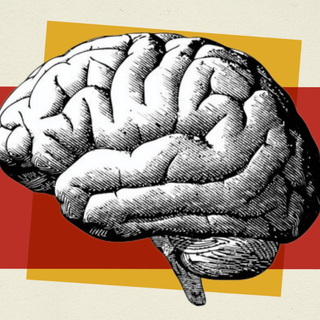
Why We Tend to Remember Stressful Events More Than Happy Ones
“It’s more important for people, for survival, to notice the lion in the bush than it is to notice [a] beautiful flower.”

“We usually have detailed images in [our] mind’s eye of stressful experiences, such as taking the driving test, even after many years… Whereas a walk through the park on the same day is quickly forgotten,” said Oliver Wolf, a cognitive psychologist at Ruhr-Universität Bochum (RUB) in Germany.
Wolf co-authored a study published last week in Current Biology. It attempts to understand why humans tend to remember stressful experiences better than regular, run-of-the-mill ones. According to the researchers, what makes stressful memories more long-lasting and distinct is that memories of objects from stressful situations are very closely linked to each other, and set apart from objects belonging to other experiences.
“On one hand, stress may increase the distinctiveness of the neural representations of central objects… On the other hand, stress — or more generally, negative emotional valence — may enhance memory by binding all relevant aspects of a stressful episode together,” the study authors noted.
As part of the study, the researchers put the participants in a simulation, where several everyday objects surrounded them. They exposed one set of participants to stress, not the others. The former set was able to recall their surroundings better than the latter. “[I]t seems that the link between the objects and the stress triggers was crucial for the enhanced memory,” said Nikolai Axmacher, a neuropsychologist at RUB, who co-authored the study.
Related on The Swaddle:
Having a Sense of Purpose in Life Helps Improve Memory, Shows Study
However, this is hardly the first time scientists embarked upon a study to understand why stressful memories linger more. In the past, researchers have suggested our evolutionary underpinnings may have a role to play here. “It is logical that attention would be focused on potentially threatening information,” Elizabeth Kensinger, a professor of psychology and neuroscience at Boston College in the U.S., said in 2007.
She believes humans are wired this way as an “evolutionary tactic” — to protect them from life-threatening situations later. “It’s more important for people, for survival, to notice the lion in the bush than it is to notice the beautiful flower that’s growing on the other side of the way,” Laura Carstensen, a psychology professor at Stanford University, told The Washington Post in 2018.
Experts also believe that dwelling on a memory makes it stronger — by strengthening the neural connections associated with it. Has evolution wired us into revisiting stressful memories more often than happier ones? The experts didn’t clarify.
However, Carstensen says that age may have a role to play in how much people choose to dwell on stressful memories. She believes a lot of information comes to the fore in stressful situations that our brains like to retain to be able to deal with similar problems again. “We think what happens with age is that younger people, because they have these long and nebulous futures, really need to collect a lot of information, and so they remember many things that will possibly help them manage those futures… The older people get, the more they’re able to live in the present; and so, focusing on positive information makes that present feel good,” she explained.
Related on The Swaddle:
Why Sexual Abuse Survivors Often Have Distorted or Delayed Memories
According to Kensinger, negative emotions like fear trigger increased activity in the part of the brain linked to memories. This results in the brain preserving emotionally charged memories in greater detail than neutral ones, as well as the ones with positive associations.
But if both happy and stressful memories are emotionally charged, what differentiates the way we retain or retrieve respective memories? The answer might lie in the body’s stress hormones — epinephrine and cortisol. Some experts suggest that their release during stressful situations results in the brain’s amygdala being activated more strongly than usual, which results in emotion-oriented solid signals to the brain’s hippocampus. The amygdala’s function is to attach emotional significance to memories, and the hippocampus’ is to form, organize, and store them. Ultimately, the impact of the stress hormones on these parts of the brain results in stronger memories.
Moreover, “for a person’s mind to store a memory, proteins stimulate the brains cells to grow and form new connections… fMRI studies reveal greater cellular activity in [the brain regions associated with memory formation] when someone is going through a bad experience,” an article in Medical News Today explains.
Whew! So, what is your strongest memory?
Devrupa Rakshit is an Associate Editor at The Swaddle. She is a lawyer by education, a poet by accident, a painter by shaukh, and autistic by birth. You can find her on Instagram @devruparakshit.
Related


Ancient Poop Suggests Humans Have Enjoyed Beer, Blue Cheese Since the Iron Age
